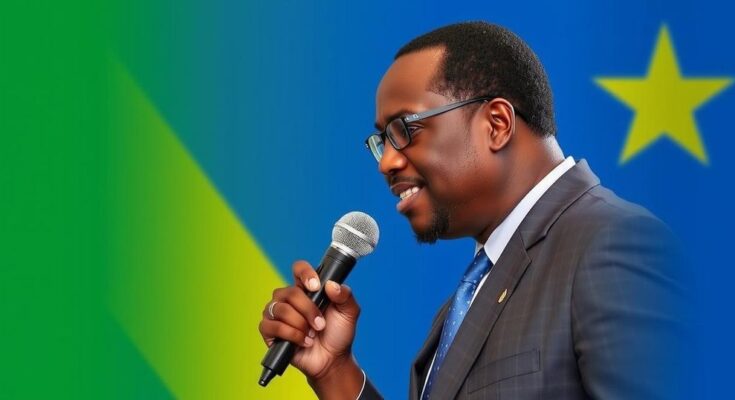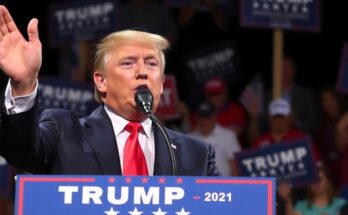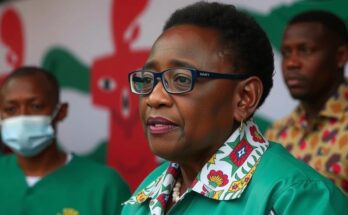Gabon is holding a referendum on a new constitution, with 860,000 voters called to participate amid extensive media campaigns. The proposed constitution includes presidential term limits and eligibility criteria that would disqualify former President Ali Bongo Ondimba. While the junta supports these changes, critics express concerns about potential dictatorial power. Voter turnout will be crucial in assessing public sentiment during this significant political moment in Gabon.
Gabon is currently conducting a referendum on a new constitution, which the ruling junta heralds as a pivotal moment following 55 years of dynastic governance. Approximately 860,000 registered voters are encouraged by authorities through extensive media campaigns to participate in this electoral process, which commenced with some polling stations opening later than scheduled. As the junta extends a night curfew coinciding with the voting, many observers note that voter turnout will be a significant indicator of public sentiment regarding the proposed constitutional changes.
The new constitution proposes limits on presidential tenure to two seven-year terms, abolishes the prime minister’s position, and prohibits dynastic succession. Furthermore, candidates must be Gabonese by both birth and marriage, effectively disqualifying former President Ali Bongo Ondimba. Transitional President Brice Oligui Nguema has characterized the referendum as a progressive advancement for the country. Despite the junta’s supportive rhetoric, critics claim the proposed constitution primarily serves to entrench the junta’s rule.
The election atmosphere in Gabon is charged as voters line up at polling places, facing military oversight to ensure security. Though many citizens have expressed hope in the junta’s intentions, some have criticized the lack of transparency and the potential for dictatorial advancement through the new constitution. Most recently, an Afrobarometer survey revealed that a majority of respondents believe Gabon is moving in a positive direction, although significant concerns regarding unemployment and governance remain prevalent.
The constitutional referendum follows the military coup in August last year that ousted President Ali Bongo Ondimba after he was declared victorious in an election deemed fraudulent. The longstanding dynastic rule in Gabon raised issues of widespread corruption and governance failures. As Gabon seeks to redefine its political framework, the proposed constitution aims to institute a system with greater accountability and limits on leadership longevity, all while the junta seeks to stabilize its authority and promise a return to civilian rule by 2025.
In summary, the ongoing referendum in Gabon represents a critical juncture in the nation’s political history, proposing significant changes to governance structures. The junta’s push for constitutional reform is met with cautious optimism from some citizens alongside skepticism and criticism from others regarding potential authoritarian implications. As Gabon navigates this pivotal transition, the outcome of the referendum and its reflection of public trust in the junta will be closely observed.
Original Source: www.arabnews.com




